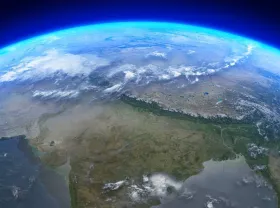UN Climate Change News, 30 September 2024 – In 2022, a staggering 1.05 billion tons of food were wasted, while 783 million people went hungry and a third of the global population faced food insecurity. This year's International Day of Awareness of Food Loss and Waste emphasized the critical role that reducing food waste can play in tackling climate change, achieving the Sustainable Development Goals, and addressing global food insecurity.
In 2022, according to UNEP, 19% of food available to consumers was wasted at the retail, food service, and household level, in addition to the 13% of the world's food lost in the supply chain, as estimated by FAO. This level of waste is not only a missed opportunity to feed those in need but also a significant environmental burden.
Food loss and waste account for 8-10% of annual global greenhouse gas emissions – nearly five times the total emissions from the aviation sector – and contribute to substantial biodiversity loss, using up almost a third of the world’s agricultural land.
It's another powerful example of why new national climate plans (also known as nationally determined contributions, or NDCs) due from all countries in 2025 must be economy-wide—taking all industries, supply chains, and actors into account.
Given the vast resources required for food production, wasted food also means wasted land, water, energy, and labour, with serious economic repercussions. The combined toll of food loss and waste on the global economy is estimated to be around USD 1 trillion annually.
Tackling food loss and waste requires dedicated policies informed by data, as well as investments in technologies, infrastructure, education, and effective monitoring systems. Reducing food waste offers wide-reaching benefits: from cutting emissions and improving resource efficiency to ensuring that more food reaches those in need, thus strengthening food security.
Making food waste reduction a central part of climate action strategies will provide long-term benefits for both people and the planet.
Food loss and waste account for 8-10% of annual global greenhouse gas emissions; cost USD 1 trillion annually
30 Septiembre 2024
Artículo




